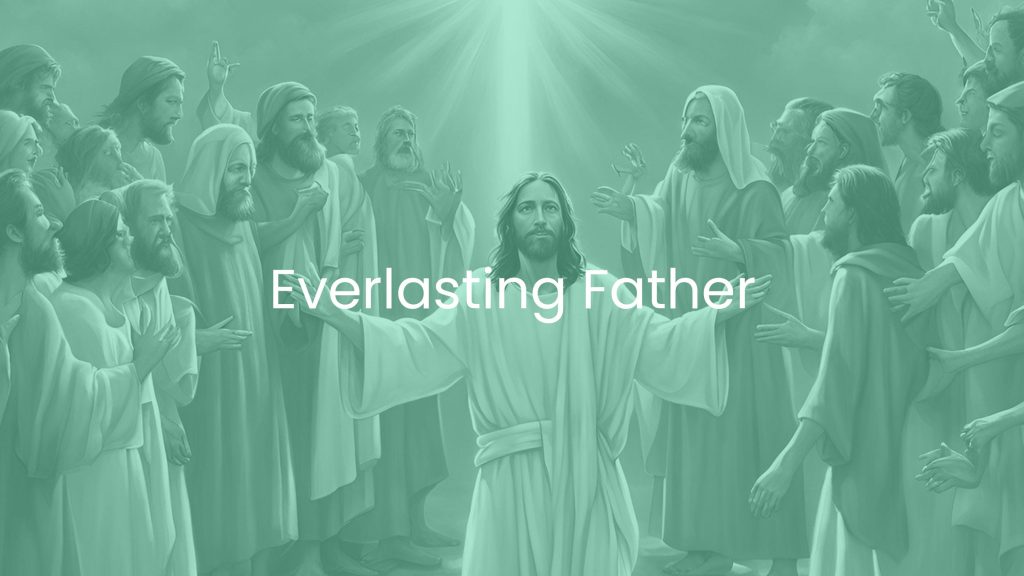|
Getting your Trinity Audio player ready...
|
For to us a child is born, to us a son is given; and the government shall be upon his shoulder, and his name shall be called Wonderful Counselor, Mighty God, Everlasting Father, Prince of Peace* (Isaiah 9:6, ESV).
The Trinity is the Father, Son, and Holy Spirit. We read in Matthew 28:19. . .
Go therefore and make disciples of all the nations, baptizing them in the name of the Father and the Son and the Holy Spirit.
Father. . . Son. . . Spirit!
How can Jesus be called Father? The theological concept of God the Father as part of the Trinity that includes the Son and the Holy Spirit (an agreed-upon description of God in the Bible by thousands of scholars through thousands of years) can still be difficult to understand.
But when we confuse the monikers and start calling the Son the Father, did Isaiah make a mistake? Should we doubt the accuracy of the Bible? Is the sky falling?
There’s a simple solution. “Whew,” we think, “our faith is safe and secure, but what is the easy explanation?”
When this passage was read by the Jews at the time of writing by the Prophet Isaiah and repeated in the Gospel of Matthew 700 hundred years later, those listening would instantly understand.
Typically, in Jewish culture, a king was called Father!
We see the same implication when we call George Washington the father of our nation.
In Isaiah 9:6, we read amazing descripti0ns of the “child is born” with “Wonderful Counselor,” “Mighty God,” “Prince of Peace,” and “Everlasting Father.” And those reading Isaiah would think, “Wow, this child as ‘Everlasting Father’ will be our king.”
Jesus is our King! Let’s now read the next verse in Isaiah. . .
Of the increase of his government and of peace there will be no end, on the throne of David and over his kingdom, to establish it and to uphold it with justice and with righteousness from this time forth and forevermore. The zeal of the Lord of hosts will do this (Isaiah 9:7).
Understanding that “Everlasting Father” means “King” (in verse six) and then reading verse seven describing Jesus on the throne of David, who establishes an eternal kingdom, it all makes sense. As the Book of Revelation describes. . .
For He is Lord of lords and King of kings, and those with him are called and chosen and faithful (Revelation 17:14).
Everlasting Father equals King of kings! What’s the application for us today?
In Biblical times, a king had two obligations in the job description: first, protect his kingdom, and second, provide for his people. Jesus does this! He provides forgiveness and salvation, and He walks with us — protecting us — into eternity.
We have an Everlasting Father!

